When I consult with parents about their children’s more challenging behaviors, I sometimes offer a visual that I hope will put otherwise volatile situations into perspective. I’ve been reluctant to share this on my blog for fear it might be misinterpreted, but since so many of the parents I hear from continue to struggle with remaining centered and calm when their children push limits and buttons, I decided to risk it and share my descriptor: teddy bear behavior. I know — teddy bears are objects, babies definitely are not. I’ll explain, but first, a bit of context…
Our children are born sentient — as present as you and I — and so our primary job is forging person-to-person relationships with them, relationships that are honest, caring, respectful and unconditionally loving.
Yet all children exhibit behaviors that are impulsive and irrational, especially during periods in their development when they need to resist us in order to test their wings (like the toddler and teen years). How are we supposed to respect our small “person” when she can be so disrespectful, hurtful and downright rude?
Some might conclude that young children are nothing more than thoughtless beasts (and that would explain the “taming your toddler” type of advice, which includes distractions, tricks, treats and other manipulative interventions). It’s easy to get personally offended, or fear that we’ve failed our child somehow, that we didn’t teach her appropriate behavior or respect.
Triggered by our anger, frustration, fear, or guilt, we are likely to respond in a manner that unfortunately creates even more challenging behavior. Truly, when children repeatedly test, it is more often than not the direct result of our previous responses. That is why remaining calm and centered matters. A lot.
The easiest and surest way to calm ourselves is perspective, which might mean reminding ourselves that the toddler screaming and swinging at us is a tiny person who has spent only 2 ½ years on this planet. She needs us to tolerate her screams and stop her from hitting, but a response of anger or confusion would be unsettling to her, to say the least.
And so I suggest that parents suffering the slings and arrows of a child’s behavior consider it in the context of something cuddly and benign, like a teddy bear.
Teddy bear behavior includes occasional hitting, kicking, biting, screaming, whining, refusing to follow directions, resistance and rejection, “I hate you” (in all its forms), and grumpy teenagers scrutinizing you under a microscope and criticizing every single thing you say, do and wear. It is age-appropriate and can certainly be annoying, but it is essentially harmless. If we can perceive teddy bear behavior for what it is and respond appropriately (for more on that please read HERE and HERE), it will be temporary and not progress to chronic, dangerous or harmful.
Teddy bear behavior is sparked by:
- A need for the reassurance our gentle leadership provides
- Stress, hunger, exhaustion
- Fear, sadness, anger, frustration, all of which children need us to help them express
- Feeling out of favor, ignored, unloved
- Emotions surrounding transitions: the addition of a sibling, moving to a new home, attending school for the first time, changing schools, changes of any kind
- Developmental phases and milestones
The two’s and teenage years are classic teddy bear territory, but ages 4, 6 and early adolescence (ages 9 and up) can also be teddy bear periods.
Teddy bear behavior is eased when we:
- Feel unthreatened, breathe, let it rollll off our back, project confidence
- Prevent it whenever possible (by giving children safe “yes” places to explore, for example, rather than free access to markers and white sofas).
- Set limits calmly, clearly, early
- Acknowledge all desires and feelings and encourage children to express them (“You feel like throwing the trucks. I can’t let you. That’s unsafe. Are you upset about Daddy leaving for work? You sometimes miss him when he goes. Over there are some safe toys you can throw.”)
- Discern needs and do our best to meet them
Perceiving teddy bear behavior doesn’t ever mean treating children like teddy bears, objectifying them, ignoring them, or talking down to them with patronizing words and cutesy voices. Children are whole people who always deserve our respect and authenticity. However, once teddy bear behavior has subsided, they might want a cuddle, whatever their age.
I offer a complete guide to respectful discipline in my book:
NO BAD KIDS: Toddler Discipline Without Shame
(Photo by LizMarie_AK on Flickr)

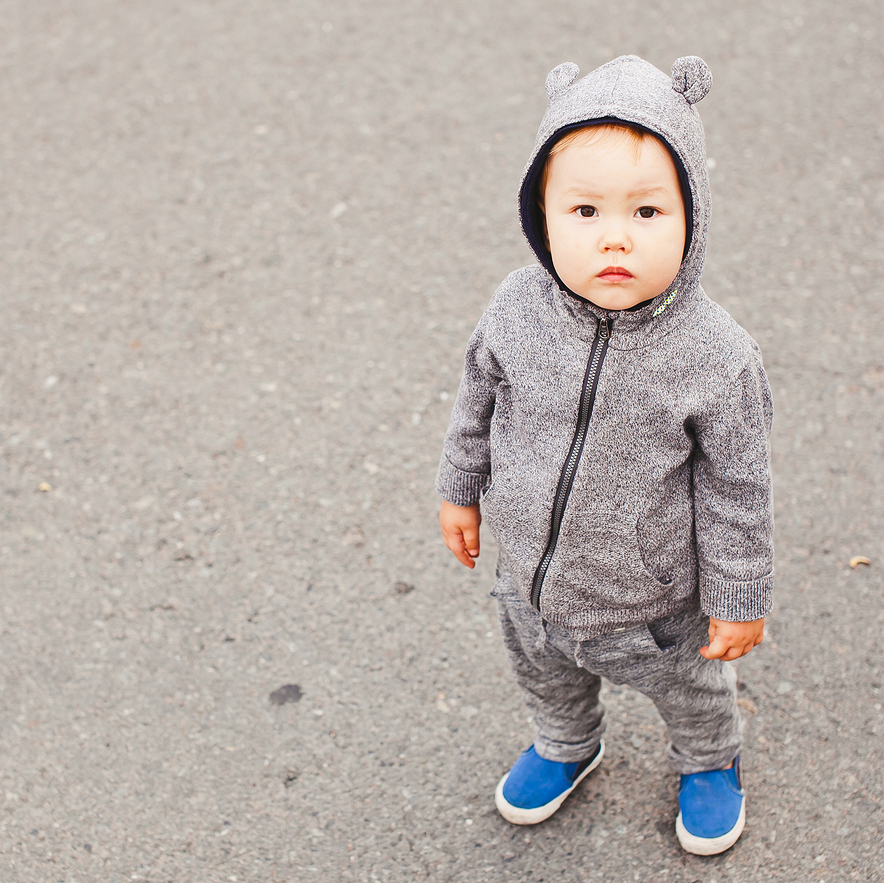
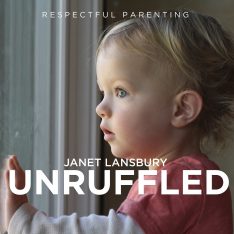
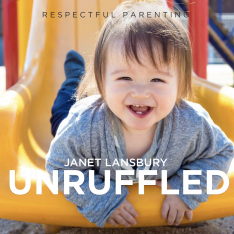


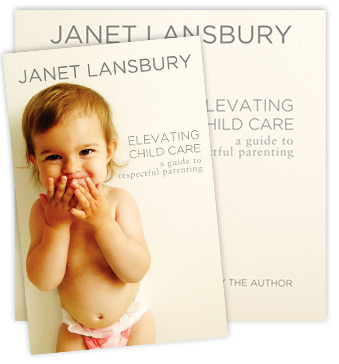

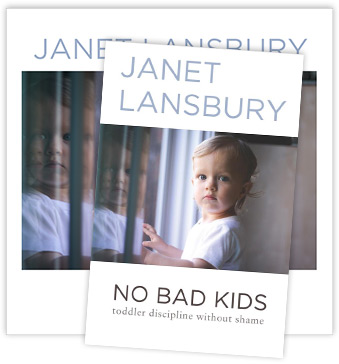


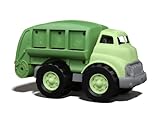
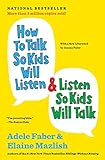
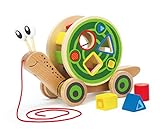

Aha! You’ve done it again! You’ve peered into my home, and written an article just for me! I struggle so much with retaining my composure with my 2.75 year old, that sometimes I feel like the biggest failure (or I feel myself turning into my mother – fierce, scary, and totally without the ability to reason when angry)…
But on those days when it is tough for Mr 2.75, and I do stay calm and present – well, it makes all the difference for BOTH of us.. Thank you for what you write Janet, and for how you share it.. Your words are like a balm.. On those not-so-together days, I know I can refer to your blog, apologise to Mr 2.75, and try again the next day..
Yes, that was me peering in! HaHA! Seriously, I’m glad to be a balm for you. That’s the best compliment you could give me.
Thank you, Janet. This post and “Let Your Kids Be Mad at You” speak volumes for us at this stage. We’ve had massive, difficult changes in our lives recently and taking in your perspective has helped tremendously.
I’m so glad to hear that, Tessa! Thank you for sharing.
Hi Janet,
I try very hard to stay calm and balanced when crisis occure, but I sometimes allow myself to be angry and tired at the whining, and to have some outbursts of my own… I think the calm part of the method works pretty well. Crisis are never very long, and we’re blessed with a very nice and cooperative child. I put part of the credit on himself but also on RIE. Thanks for all the good advice !
What really unsettles me in my son’s behavior is that he really often hits himself whenever we tell him not to do something, or even say a really nice remarck or advice.
I don’t think he actualy hurts himself but this redirection of frustration on his own body is hard to witness and prevent… I try to tell him we won’t let him do this, to stay calm. But I think he can feel my feelings about it…
Still some progress to be made about the little bear !
Hi Laurence! I would not comment on the self-hitting. Like whining, screaming, shouting, this comes under the category of “behaviors that are completely out of our control”. How old is your boy? Children hit themselves (or bang their heads on the floor) for a variety of reasons…and it is almost always harmless behavior…that passes. But your focus will give this behavior power. Yes, he knows your feelings, so I would do your best to totally let it go. If not, you will risk making this behavior into a bigger issue.
My only other recommendation is trying not to explode around him. I understand that you are human, of course! But it would be better to take a breath and tell him more calmly that a particular behavior makes you angry sometimes (if you feel the need to do that). The danger in allowing yourself emotional outbursts is that you create guilt, shame and less security for your son.
Thank you for your anwser Janet. My son is two. Actualy my occasional outbursts aren’t linked to his hiting. It’s usually after a long day when he and I are tired.
I understand it’s not the way I should act. But on the same time, sometimes, it’s the only way for me not to be completly artificial in my reactions, and to let it go. But it isn’t even once a week, or even once a month.
When he hits himself I’m not angry, I feel helpless. But as you say i’m pretty sure he doesn’t really hurt himself. Once I tried to stop him a little clumsily and I did hurt him (not my best moment as a parent)… Maybe I think I know how he feels, because I’m very hard on myself when I think people found me at fault. So it triggers something in my own feelings… I try not to show it, but it troubles me nonetheless.
Urgh. Sorry, but ummm. Articles like this kinda make me sick. As in, I have a violent gag reflex whenever I hear words like “teddy bear” behavior or “gentle leadership.”
Fact: Children can and do act like sociopaths. The point is to wean them out of it. Not by gently sparing their feelings (at the expense of your own), but being honest with them. Treating your child like a special snowflake breeds a whole mentality of entitlement that does no service to them in later life (Not that you should neglect or abuse them either, just be real with your child. The child wants to know boundaries, correct. So give actual boundaries).
Example, if your baby boy hits his infant sister, you need to actually impress upon him that yes, other people can get hurt, and no that’s not okay to do. “Apologize to your sister” you have to actually make him say it, and if he won’t, no dessert (or if he’s being really bad, no dinner). Gasp, you say, that’s abuse. No it’s not. This is a child harming another person who can’t defend themselves. It is important for the growth of empathy to know what it’s like to suffer hunger or some other thing. You can give him something later.
Distractions and tricks are just that, distractions and tricks. They are distracting and tricking you from the actual issue. That a child needs boundaries, and will act out until they get a firm sense of what definitely isn’t permitted. What isn’t permitted? Putting himself in harms way and putting others in harm’s way. The rest of the stuff is just rules.
You notice I said boundaries, not limits? It’s because you shouldn’t limit a child in what they can do, but rather teach him where he ends and another person begins. A child who does not understand where he begins and another person… well, you get the idea, grows up into one of two things, a jerk or a sociopath. Neither is discipline a substitute for boundaries. Boundaries are ultimately supposed to be about love, not rules. You’re not teaching the child to follow orders, you’re showing him that he’s being pushy, and other people have feelings.
Back to the baby hitting no-dinner thing. What is the child doing? He’s causing harm (and if he hits too hard, permanent damage) to his sister. Because he hasn’t any empathy for his sister, hmmm “why should I care about you”? But you do, so just telling him “that’s not nice” is not gonna cut it for impressing upon him that ummm, maybe this is a bit serious. Not listening to you, whining, screaming, shouting, that’s something you can just tell him about. But hurting others or himself, that’s something that I was spanked over. And it was pretty much the only time I was spanked.
One person ends and another begins! This is brilliant and a very important boundary to learn for a child. Probably the most important to become a decent adult.
“your baby boy hits his infant sister, you need to actually impress upon him that yes, other people can get hurt, and no that’s not okay to do. “Apologize to your sister” you have to actually make him say it, and if he won’t, no dessert (or if he’s being really bad, no dinner). Gasp, you say, that’s abuse. No it’s not. This is a child harming another person who can’t defend themselves. It is important for the growth of empathy to know what it’s like to suffer hunger or some other thing”
Punishment (ie removal of dinner etc) for bad behaviour doesn’t actually encourage “growth of empathy” as you put it. Punishment encourages a sense of shame and can ultimately create resistance, even if children comply after being punished often it is not because they have developed empathy or are sorry it can be out of fear and resentfully, if you create a sense of guilt in a child you may look like you are getting the behaviour you want out of them but it won’t be genuine. It isn’t actually teaching them empathy. Empathy and compassion has to grow from them, you have to teach it – explain why it hurts why its not okay, punishment is very rarely for the Childs growth or benefit but rather an impulsive reaction from a parent triggered from our own fear that our children are “uncontrollable” and not behaving “well”.
Somebody doesn’t get it, and didn’t read the article.
I’m pretty sure we all lapse into Teddy Bear behavior from time to time, no matter how old we are. Our lives would certainly be more peaceful if we recognized and helped ease that in ourselves and others.
Yes! Well said, Laura.
This article is exactly what I needed! Just like everything you publish. I just need to air something, and I welcome any feedback or suggestions.
We recently took a two hour flight with our 2.5 year old son. He happens to be an excellent communicator which has helped us ride many waves respectful of one another. That is all preface to say that the last 40 minutes of our flight was quite horrible. He absolutely refused to wear his seatbelt and screamed bloody murder about it. I managed to remain calm- but not entirely confident. I hated that I had to keep physically dominating him in order to keep him safe. He hit and kicked me numerous times, so our conversations were mainly, “I won’t let you hit me.” Followed by, “I can tell you are having a hard time not hitting me.” At that point, I felt like my only option was to overpower him and pin his arms. If we had been on the tarmack waiting to take off, I’m convinced we would have been kicked off the flight, as I’ve read has happened with other families. Next flight, I’ll be putting him in his car seat, but we can’t avoid flying all together. Any thoughts?
p.s. The passengers were very kind when we landed, but I felt a bit like a victim with some of the responses I got. It definitely opened my eyes to being careful about patronizing my son when he’s having a hard time.
I hope any of this makes sense!
I’m so glad to be of help, Amy! Hmmm… Why was it that your boy didn’t want the seat belt? Did you ask him?
This is probably not the type of advice that Janet would give, but I travel a lot with our kids and we find that having rituals help. We have a small snack when we get on the plane and get settled in. Once we are in the air, my 3 year old can have story time, paydough time, and even some iPad time (more than she would get at home). We try to keep the kids buckled at all times like in the car so they don’t fight it. For landing we do our ritual of putting the seat back up, putting the iPad away, putting the tray away, putting on seatbelts, etc. When all that is done, my daughter gets a lollipop to help with the cabin pressure changes that hurt her ears, but it is also the last part of the landing ritual and the one she looks forward to the most. Once everything else is done, we have lollipop and storybook time. Is it bribing or a reward in that context? I don’t know. It’s something we’d give her to help her ears anyway, it makes sense for us to have that be at the end of the ritual once everything else is done. She looks forward to getting the lollipop.
Maybe for the next flight you can prepare a little picture book to go through these steps before the flight and then again during the flight so he knows what to expect and give him warnings,”hey in 10 minutes we need to put everything away and buckle up.” Follow up with a 5 minute warning, etc. Let him mentally prepare for the change.
I’d also recommend the CARES harness. It helps to make the regular plane seat feel like a car seat and its safer. You then, don’t have to lug the big car seat on the plane.
Also, remember, you will never see those people again. Kids will have melt downs at the most inconvenient times. I try to just focus on what’s happening between myself and my child and ignore the stares.
Kate – I totally agree with your advice, and am especially glad you mentioned rituals and mental preparation…hugely important. Thank you so much for taking the time to share!
I had gone to the restroom and in that time he had jumped across the aisle onto his dad’s lap. My husband was startled and said, “They have the seatbelt sign on.” So I brought my sons back to his seat. When I asked him what was going on his response was, “I want to sit on daddy’s lap. I don’t like this.” I acknowledged his desire and told him that it’s my job to keep him safe. We repeated this conversation for 40 minutes. We had also had to wake him two hours early to start our travels. A perfect storm, I think.
His tiredness certainly set the stage for this episode, but I’m also thinking you might have slowed down and done a bit more to make him feel heard. Sounds like he might have felt safer in his Daddy’s lap…if he sensed turbulence… and perhaps he could have had the option to buckle his seatbelt himself. Did you feel a bit panicky about this? If so, that would have made the situation more difficult, because he would definitely feel your panic. Anyway, please don’t take any of this as criticism! I’m just trying to explore what might have made this situation easier for you.
Thank you! I don’t take it as criticism at all. I know that I was panicked, because I am a survivor of PTSD surrounding the death of my younger brother from an accident. My mind goes to tragedy, and my thoughts were racing about possible turbulence and him becoming a projectile, and me blaming my husband if he had let go of him under those circumstances… It goes on and on. I asked my husband after, and he said I sounded calm and confident, but our son can read me before I have read myself. Thanks for letting me process this. And thank you, Kate! Our son has flown numerous times without incident, so I was caught off guard. Knowing him, he would definitely respond to the book with the steps in it. He watches a Kindle and has a lollipop, too.
And, yes, he is adept at buckling himself in. At a certain point, he just refused. Happy Thanksgiving, everyone!
Happy Thanksgiving to you and your family, Amy!
Thank you for this post. Staying calm and present is very hard. It has been a work in progress for over a year and a half for us. My daughters are 3 and 18 months and I unfortunately went through a period of serious postpartum after #2, that I didn’t recognize at first, which has caused us to have to almost start over.
Both of my girls are very independent, active, strong-willed and determined. All qualities that will serve them well but are difficult for me to know how to work with a lot of the time. One of the hardest things for me is knowing what to say when situations arise. If I try to acknowledge feelings often my three year old will start yelling, “Stop telling me that” or “Leave me alone” before I can even get three words out of my mouth. It makes me feel deflated at times because I feel like I’ve failed before I’ve even started. I just tell her, “I hear that you are angry. I’ll be right here if you’d like me to hold you and cuddle with you.” Often she’ll walk away and grab her blanket and come back but sometimes she stays in her room for a while, I’m guessing to process and calm down. Anything you’d recommend I’d do differently?
My three year old is also very hard to read and is very easily frustrated by the smallest things such as struggling to put a shirt on or a block tower falling over. Part of this I think comes from the fact that she is somewhat advanced in academic areas for her age but she still has the motor skills and emotional intelligence of a typical 3 year old and I think she feels she should be able to do more than she physically can and it is frustrating. She’ll say, “I can’t do it!” so I’ll offer to help if she wants me too but usually she’ll yell, “No! I can do it.” so I just try to offer her words of encouragement such as, “I’m sure you can do it if you keep trying and practicing but if you decide you need some help I’ll be right over here.”. Does that sound ok?
And then there are sometimes I’m at a loss for words and don’t know what to say. I just keep praying that eventually something will click and things will come more automatically and feel more natural when I respond instead of hesitating and trying to recall the “tips & strategies” I have been learning. I think she can sense my hesitation and that’s why she often ignores or continues behavior even when I feel like I’ve said the “right” thing. I’m continuing to study and learn!
Hi Kimberly,
I feel the same way you do, about my 2.75 year old son. Janet, do you have any suggestions for us?
~Michelle
thanks for the post and happy thanksgiving
I find this helpful, and don’t usually find myself struggling to remain calm and confident when my (almost 4-year-old) daughter is directing her anger toward me. However, she is in a phase (again) where she directs anger and aggression toward the (aging, arthritic) dog, and that’s harder for me to address in a way that feels productive. The dog is very patient, and has never shown the remotest aggression toward my daughter, fortunately, but I don’t feel like it’s safe for the dog or the girl to ignore the behavior (she nearly pushed the dog down the stairs a few days ago). But I know my daughter is doing it probably primarily to get a reaction from me. In fact, sometimes she will announce to me, “I just hit Rover” (when I am ignoring or just didn’t see). At the same time, I can’t always block or prevent the behavior, and keeping the two separated de facto feels like I’m punishing one or the other of them, since both of them want to be near me when I’m, say, cooking dinner. I don’t feel like it is fair to the poor dog to have the dog banished to another part of the house because my daughter is hitting her. And because it can happen without warning, there’s really no time when I can be absolutely sure that she won’t go after the dog. I used to ask my daughter to go to her room until she was ready to not hit, and that worked, but lately she will come out of her room and immediately hit the dog again. I find myself being inconsistent (sometimes ignoring, sometimes telling her she needs to be in her room), and I know that is sending just the wrong message and absolutely magnifying her need to explore what happens when she hits the dog! But I have not found a way to address this concern in a way that feels respectful, consistent, and safe. Physically blocking it is workable only when I’m not in the middle of cooking dinner or otherwise right next to them. And of course it’s when my attention is on dinner (or laundry or….) that it tends to happen most.
Perhaps someone who has had a similar challenge (perhaps even with a human rather than canine sibling!) might have an idea? And I do think the sibling metaphor is apt here — I believe my daughter does see the dog as a figure who “messes up” her toys, who shares my lap, and so forth.
I’m new to this site…so forgive me…but I’m still not clear on what Teddy Bear Behavior is. Am I missing something?
Katie – it’s a term I’ve occasionally used to describe impulsive or emotionally driven behavior that seems unreasonable… This might include hitting, biting, throwing toys, “back-talk”. resistance to following directions, etc.
I’m trying to be really patient and treat it as teddy bear behaviour, but my 2 1/2yr old is CONSTANTLY saying stupid. When he is frustrated he says it to an object, to me to anyone who is listening. It also is said randomly, ‘can I have more mummy stupid?’ ‘You stupid’ said to older brothers constantly. How should I handle this? Especially when his older brothers keep commenting, ‘C said I’m stupid?’ I know they taught him this…they say it sometimes when they are frustrated. Gah, it’s breaking my heart!
Nikki, when this stops breaking your heart, your boy will stop doing it. You are giving this word way too much power. This is a phase, an understandable one since there are older siblings in the picture. Let it go and it will pass more quickly.
Hi Janet, I have 16 month old twins who are still not walking or talking but who seem very frustrated. I’m so patient but how can I stop the constant moaning. It’s horrendous, I play with them and talk to them so much but it’s never enough. I’m with them all day and always give them time to play alone together. One in particular keeps following me putting her hands up to me to be lifted. She wants me to carry her around while I do things. They understand pretty much everything I’m saying now so I don’t know if I should be saying something to them or what. Thanks
My teddy bear child at 2 and 3 years old really needed help with control and needed my help with that control. Her motto as a toddler was if it is alive kill it other wise break it. As the hippy dippy earth mother that I was I still realized that this was not healthy for her growth as a human on our planet. I loved her unconditionally but would stop her anytime she was doing anything that was destructive. I remember a couple of time outs that I had to hold her arms to keep her from hitting me and wrapping my leg around her legs to keep her from kicking me. But it only took a couple of time outs with me rocking her and telling her that mommy loved her and that we were both upset and needed to calm down, to learn that I was there to help her regain control. She also learned that mommy ran faster than she did (at first no meant run as fast as you can to get your own way) but she learned that her mother and father wanted to protect her and still treasured her for who she was. She has turned into an incredible person, very unique and caring. She once told me as a teenager when I had to say no to a concert in LA with friends at age 14 that she understood that we wanted her to be safe and she was ok with our decision. By laying the ground work as a toddler I was so amazed at how compliant she was as a teen but still completely her own person. She knew that when I meant no, I really meant no. But she also knew that if I could say yes I would. She was voted most unique in High School for the many colors her hair was (and they ALL looked great on her) and her unique views on life and is now a most incredible adult and I am proud to be her momma. I guess all I a am saying is that while we really need to shower our children with unconditional love, we still need to be ready to “be the momma” and be willing and ready to take control when our toddlers are unable to. Sometimes that is all they need to feel safe and loved.
I notice my little angels are helping again…in a period of constant struggle with my 8 year old son…I read this…and a light goes on…this mama has big problems keeping relaxed and not getting angry and starting to shout…my son has big problems just dealing with life and all it’s issues around it seems. I think he’s just going throough a fase but he’s sooooo stretching my limits that we constantly hit a wall.
After reading this…now I understand. I need to start being relaxed in my reactions and stop feeling attacked by his words and attitude. And I have to start dealing with this in another way…though I certainly do not feel like a supermom 😉
Life is not really easy for us for the past couple of monnths so we have a lot of stress and negativity. It seems my little boy has trouble with that…now I’m feeling guilty for not noticing this or thinking about it…the stress and stuff just overloads me…and then the struggle with him…at the end of the day I’m beat and just can’t deal with it normally anymore 🙁
I feel like a kid myself and find myself reacting in a very childish way a lot of the time…and get angry at myself for doing so…but this helps, I’ll print it out and put it next to my bed so I can read it again to remind me of all things positive and the fact that this will end…
Thank you!
Teddy bear sounds a lot like the Gesell Institute discription of disequilibrium in growth patterns. A far cuter image is the teddy:) Parents knowing and understanding these periods will weather these storms with gentle guidance. But, as a parent of adult children, I can also say in retrospect, these times seem such a small part of the overall parenting experience. Leading to my Mother’s favorite expression, “This too shall pass”
What do you suggest doing when a 4 year old starts exhibiting this behavior at someone else’s house? I can handle it at home, but when we are away I am never sure what to do. Other adults often feel the need to try to step in and talk to him, which just ends up making him more frustrated, so I guess the options are go to another room or leave…it just always ends up being embarassing for me.
i have the same thoughts here
Great piece Janet. I do think it is helpful to realize that adults are often impulsive, disrespectful and downright rude to their kids and their spouses and others…it’s not just for kids during certain stages. So the first step would be to set limits with ourselves on how we can act when we are angry, triggered. It’s helpful to look at why certain things trigger us…to look back into our childhoods etc.
My 4 year old sneakily stuck a tiny lego piece in my 6 month old’s mouth while I wasn’t looking. Luckly she coughed and I ran over to check on her and pulled it out of her mouth. I then spanked him and told him that he was bad.
I was so sad after the incident. I some times, well many times I loose my cool. I would love to think of him being just a teddy bear in these situations, but I just can’t.
Help!
I love everything about this post except this idea, “If we can perceive teddy bear behavior for what it is and respond appropriately (for more on that please read HERE and HERE), it will be temporary and not progress to chronic, dangerous or harmful.” The way I would word it is that “If we (see and respond appropriately) we will have done our part to invite (the inappropriate behaviors) to be temporary and not to progress to chronic, dangerous or more harmful..” I guess that is the one thing I don’t agree with in all the other 98% insights that I love in all your writing. This idea that if we just respond well then our kids will too. Some kids won’t, that’s just the hard truth. I read somewhere recently a father say embraces a Budhist mantra to parenting, “Total commitment to the process, total equanimity about the outcome.” My role is to to do all I can to invite my child to choose well in life (and to forgive myself when I don’t) and then to let go of worrying or trying to predict or taking credit or blame for where my child ends up. What do you think?
Thanks, Rachel. So, are you saying that some kids will progress to dangerous, harmful behavior regardless? I don’t agree with that, just as I don’t believe children are innately “bad”.
Yes, that is what I am saying. I don’t believe that any child is innately “bad” either, but I do believe that some children come to this earth with very difficult genetics/tendencies and that regardless of the quality of caregiving they receive, they will still struggle with harmful/dangerous behaviors. I worry that not acknowledging that some children can have very difficult genetics as the reason their harmful behaviors don’t respond to our loving/attuned/accepting nurturing, is setting parents up for feeling like failures. This is the kind of thing I’m thinking about, the kind of acknowledgement that helps those of us with loved ones who struggle right up to the end find peace. Would be interested to hear more of your thoughts on the subject. http://momastery.com/blog/2012/08/29/for-maggie-who-lost-her-lobster/
love reading about the thoughts and different comments around the airplane story. It helped break down the behavior. I sometimes try to back track like this and it helps me so much improve the next time a wave may be rolling or is to the point of crashing. Thanks.
hi janet, this blog came at the right time as just last night my 4.5 yr old had his own outer body experience. And for the first time in a very long time. I did not stay calm, and i did not go and sit with him in his room where his daddy told him to stay. and everything went pair shape. He struggled to calm himself down, and new we were both upset with him. I could not talk to him he was so out of control, i did not want to stay with him, cause i felt out of control. Im so tired of him saying NO to everything i ask him to do, Bath, eat, bed time ect ect. Im lost for words.
Keep reading everything here and EXERCISE. Even just doing as many jumping jacks as possible, before 10a. Push ups, sit ups: Move.
Before 10a. so you aren’t still carrying the day before into your lunchtime. 5 minutes, 3, more, whatever, just get a burst of you moving in your morning, everyday.
We are all doing our best and that is awesome 🙂
I have been following your page a while now and always wishing it was around years ago when I needed it parenting my own children when they were younger. I have found it very handy for the new mum group I facilitate and as a parallel line of thinking to the more mindful parenting I try to exhibit in recent years but it has often taken some thinking to extrapolate it out to my older one in particular. My boys are 7, 10 and 14 and we went through a big Mummy’s reached her limit meltdown/tantrum just a few days ago which we are working back from. I too can now say, like many others who respond to your writing, that you seem to have some sort of spy camera in my home and this was most perfectly timed! Thank you.
Thank you for all of your wonderful encouragement, Anna! I’m thrilled you’ve found the articles helpful! And yes I do have a spy camera 😉
I need some serious help. Do you have any advice for two year old twins?? My girl is precious, sweet, and compliant; with the occasional expected meltdowns. My boy is a “beast” constantly throwing things, angry, crying, and CLINGY. I’m at my wits end. I tried to hold him even more to make sure he felt secure. I tell him beforehand what to expect, including our expectations. I make sure he is fed and he sleeps. He just seems to be getting worse. HELP.
Thank you thank you so much for all your great articles. It feels so comforting just to read anything that you write and I love your books. Every time I need an explanation for my child’s behaviour I just automatically turn to you for an answer. I’m so great full to have discoreved this positive and gentle approach to parenting. Since few days I have been hearing my 27 month old daughter saying ‘pas beau ‘ to my mother (grandmother) which means ‘not good’ in french. She is just saying it randomly like that , even when mother looking at her. My mother came from Sweden 10 days ago to France to visit us and everything was going so well until 3days ago that my daughter starting to say that to her for no reason. She express ‘not good’ to me and her father too but only when she disagree with something not for no reason. First I thought she could be tired or exhausted but she has been expressing it even when she is not. My mother is leaving in 3 days and I’m really upset that my daughter is talking to her like that. My mother and I had an argument with each other in front of her few days ago which was was so regretting and I’m suspecting her behaviour could has to do with that! And if it does, will it go away ? Or what could it be. I really feel awful about it because everything was going so amazing! I would love and appreciate your opinion about it. And thank you so much again . Lots of love – mehri
Great piece.